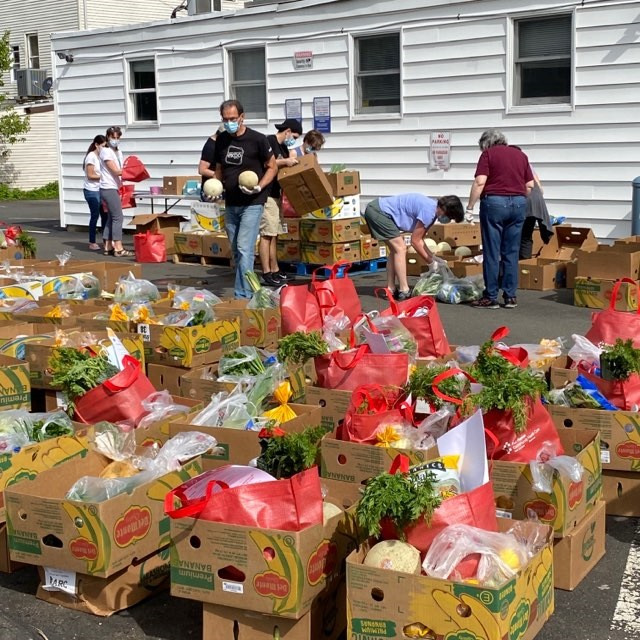Stepping Forward to Address the Impact of COVID-19
from STEPPING FORWARD SPECIAL EDITION OF CONNECTIONS
COVID-19 has caused devastating financial, health and social impacts throughout the region.
In a July to mid-August 2020 DataHaven Community Wellbeing Survey, one in five of all adults in Connecticut reported that at least one adult in their household had lost their job or had been laid off since February of that same year.1
As of February 2021, nearly two in five (39%) small businesses have closed their doors in Connecticut since the beginning of the pandemic, as compared to one in three (33%) small business closures nationally.2
While some sectors, including manufacturing and construction, have begun adding jobs, as of January 1, 2021, overall payroll employment in Connecticut is down 6.1% from one year ago.3
Smaller, community-based organizations and the arts, in particular, have lost significant fee for service revenue since the pandemic began. A 2020 survey of Connecticut nonprofits showed that about one in five nonprofits (21%) reported being somewhat or very unlikely to be able to fully fund payroll. Nearly half (46%) of small organizations reported that they were struggling.4
One small Hamden-based youth arts organization, Arts for Learning Connecticut, reported to The Foundation a 65% decline in volume of programming overall in 2020, translating to approximately $350,000 in lost revenue.
The ripple effects of the pandemic are also seen in the struggle for residents to get their basic needs met. The 2020 DataHaven Community Wellbeing Survey revealed that 12% of adults in Connecticut did not have enough money to buy food for themselves or their family at some point during the prior 12 months.5
Despite supply chain shortages, declining food donations, increasing food costs and depleting inventory due to the pandemic, Connecticut Food Bank purchased more food than ever before in 2020 and distributed food through approximately 80 member agencies and programs serving Greater New Haven communities. The average volume of food distributed at a Mobile Pantry increased from 5,000 pounds to as high as 11,000 pounds of food provided in a single distribution.

Sources:
1,5 2020 DataHaven Community Wellbeing Survey and COVID-19 Response Wave
2 Opportunity Insights Economic Tracker
3 CT Department of Labor
4 CT Community Nonprofit Alliance Survey
